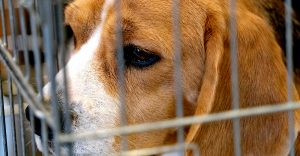A massive collection of dog tumor samples is revealing the secrets of a contagious, parasite-like cancer that could help explain human cancers too.
Read more…

Most people think of collagen as an anti-aging product. You’ll find collagen in cosmetic products and in supplements because it’s the elastic protein that holds skin together.
As we age, the amount and quality of collagen in our bodies starts to diminish. That’s why we can see our skin begin to wrinkle and sag.
Collagen is also found in the joints and connective tissues of the body. In fact, collagen makes up 70 to 90% of our:
When collagen breaks down in the body it can cause …
We also see disorders such as …
VLA COMMENT: Let’s pretend this is an animal study for human beings. That being said…how many people do you know have hip or knee replacement surgery. Could it be that vaccines in the human population is also causing antibodies to collagen?
By Dr. Karen Becker (associate of Dr. Mercola as it pertains to pets)
It’s estimated that 14 million dogs and 90% of cats over age 12 in the US suffer from osteoarthritis, which can affect their quality of life. This recent FDA approval of a treatment for osteoarthritis pain may be a game changer for many pets in distress.
Secondary OA, on the other hand, can have a wide range of causes, including trauma, abnormal wear and tear on the joints and cartilage or an inherited defect present at birth such as hip dysplasia in dogs.

A division of the National Institutes of Health (NIH) run by Dr. Anthony Fauci allocated $1,836,453 in taxpayer dollars to test an experimental hay fever drug on dogs, rats and mice, according to documents released Monday by the White Coat Waste Project. The FOIA documents show five separate dog experiments are planned — including tests on 6-month-old puppies. Some dogs could be force-fed large doses of the drug for months, the Washington Examiner reported. Read more….
Dog owners throughout the UK are now legally required to have their pets microchipped, or else face a fine of up to £500.
All dogs in England, Scotland and Wales must have the chip by the time they are 8 weeks old. Northern Ireland has had the law in place since 2013.
If local authorities discover a dog who has not been microchipped, the owner has 21 days to comply with the law or be fined.
It is believed that one million dogs in the UK are not currently microchipped.

Scientific studies involving mice and rats show that test animals have developed aggressive and lethal microchip-induced cancerous growths. Scientific reports also show that chipped zoo animals have developed microchip-associated cancerous growths. Medical reports and scientific studies also reveal that dogs and cats have developed aggressive cancerous growths at the site of their microchip implants.

VLA COMMENT: I remember this flu outbreak in dogs caught my eye in 2004. I got the hit then that there was some experimentation going on…and the racing greyhound track was a perfect place to experiment. That is my opinion…another pharmaceutical experimentation. Now we have the flu vaccine for dogs. Perhaps it will come to a point where you can’t get your dog into an animal hospital without he/she getting a flu shot first, like they are doing with humans.
For dogs to get the influenza shot, they have to be at least 6 weeks old. Most veterinarians will suggest the two-shot vaccine be given three weeks apart. The booster shot should be administered once a year for maximum efficiency.
Propaganda “Most dogs who have the vaccination will not experience any negative effects, Arlington Animal Hospital wrote. If there is an adverse reaction, small-breed dogs are the most at risk for a side effect. The most common is fatigue. Other possible symptoms include fever, vomiting, diarrhea, respiratory distress, facial swelling, pale gums and pain at the injection site. There is a chance a dog could go into an anaphylactic event, which would need immediate medical attention.
A Parvovirus outbreak in Queensland, Australia, has killed dozens of dogs since September 2014. Pictured: A dog in Chicago, United States, wears a protective mask.
The first recognized outbreak of H3N8 canine influenza occurred in racing greyhounds in January 2004 at a track in Florida. From June to August of 2004, outbreaks of respiratory disease were reported at 14 tracks in 6 states (Florida, Texas, Alabama, Arkansas, West Virginia, and Kansas). Between January and May of 2005, outbreaks occurred at 20 tracks in 11 states (Florida, Texas, Arkansas, Arizona, West Virginia, Kansas, Iowa, Colorado, Rhode Island, and Massachusetts). Since then, the H3N8 canine influenza has been documented in 40 states and Washington, DC. The H3N8 strain of canine influenza virus is endemic in areas of Colorado, Florida, New York, and Pennsylvania.
The first recognized U.S. outbreak of H3N2 canine influenza occurred in 2015, starting in Chicago and spreading to otherr Midwestern states. Since March 2015, outbreaks have occurred in a number of areas throughout the U.S. and more than 2,000 dogs have been confirmed positive for the H3N2 virus. READ MORE…